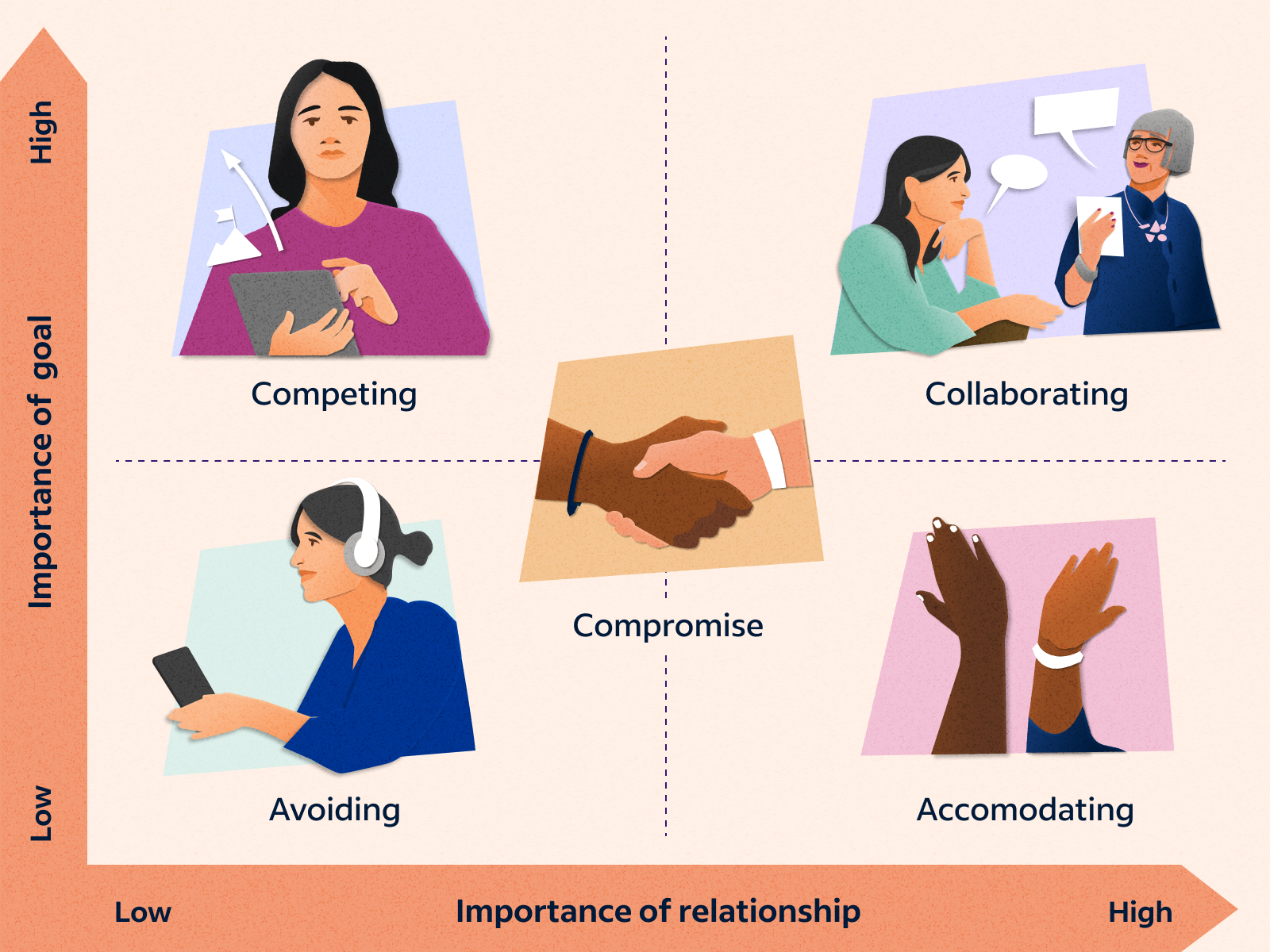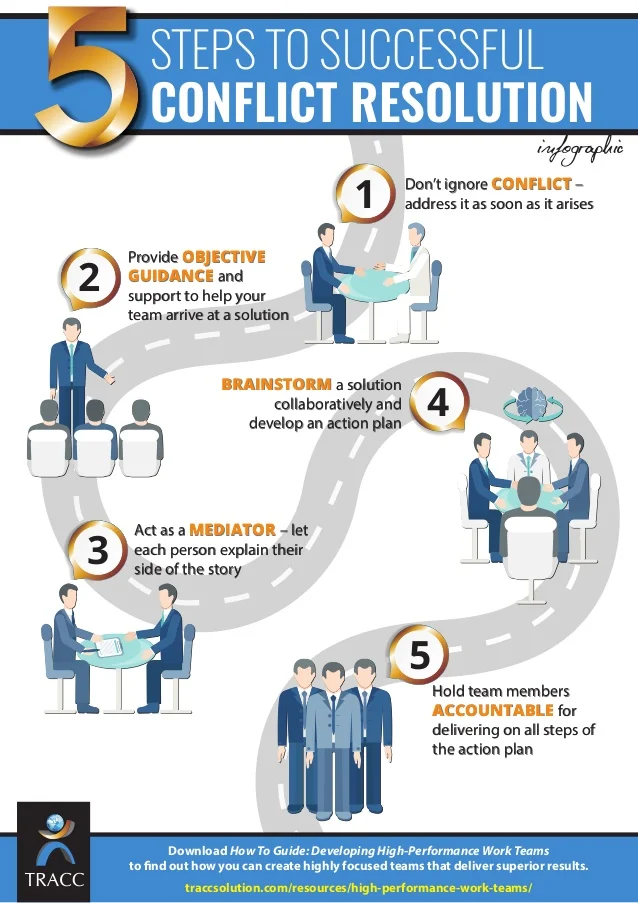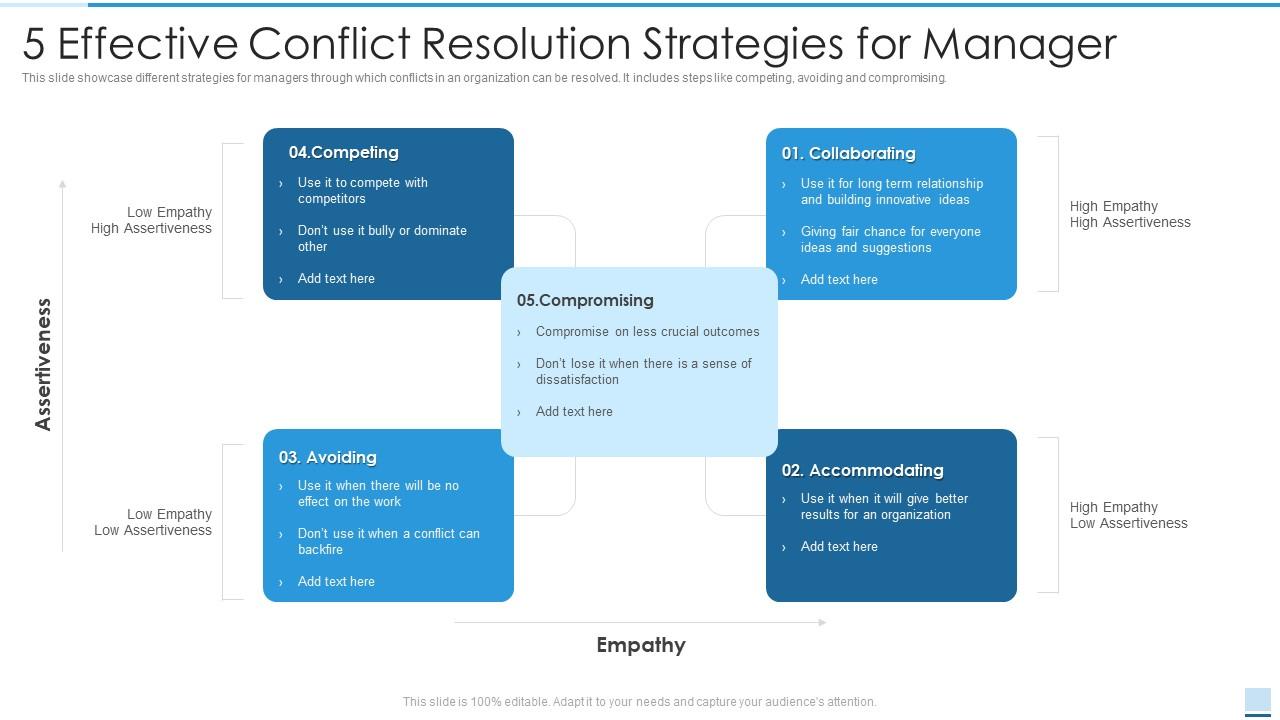The High-Stakes World of Startup Conflicts
Startup environments are inherently high-pressure, with entrepreneurs and teams racing against the clock to innovate, iterate, and disrupt markets. However, this pressure cooker atmosphere can also lead to conflicts that can make or break a startup. Effective startup conflict resolution is crucial to preventing these disputes from escalating into full-blown crises that can damage relationships, hinder productivity, and even lead to the demise of the company.
One of the unique challenges of conflict resolution in startups is the blurring of personal and professional relationships. Founders and team members often work closely together, sharing a common vision and goal. However, this proximity can also lead to conflicts that are deeply personal and emotional. Moreover, the limited resources and high stakes of a startup can amplify these conflicts, making them more difficult to resolve.
Furthermore, the fast-paced and dynamic nature of startups can make it challenging to establish clear communication channels, roles, and responsibilities. This can lead to misunderstandings, miscommunications, and conflicts that can quickly spiral out of control. In this high-stakes environment, startup leaders must be equipped with the skills and strategies to resolve conflicts effectively, before they become major problems.
According to a study by CB Insights, conflicts between founders and team members are one of the top reasons why startups fail. This highlights the importance of effective conflict resolution in startup environments. By understanding the unique challenges of startup conflicts and developing the skills and strategies to resolve them, entrepreneurs and startup leaders can reduce the risk of conflict-related failures and create a more positive and productive work environment.
In the next section, we will explore the common sources of conflict in startups and provide tips on how to identify potential flashpoints before they escalate.
How to Identify Potential Flashpoints in Your Startup
Identifying potential flashpoints is crucial to preventing conflicts from escalating in a startup environment. By recognizing the common sources of conflict, startup leaders can take proactive steps to mitigate risks and create a more harmonious work environment. So, what are the common sources of conflict in startups?
Differing visions are a common source of conflict in startups. When founders and team members have different ideas about the direction of the company, it can lead to disagreements and power struggles. To avoid this, it’s essential to establish a clear and shared vision for the company, and to ensure that everyone is aligned with this vision.
Communication breakdowns are another common source of conflict in startups. When team members don’t communicate effectively, it can lead to misunderstandings, miscommunications, and conflicts. To avoid this, it’s essential to establish clear communication channels, and to encourage open and transparent communication throughout the organization.
Role ambiguity is also a common source of conflict in startups. When team members are unclear about their roles and responsibilities, it can lead to confusion, frustration, and conflict. To avoid this, it’s essential to establish clear roles and responsibilities, and to ensure that everyone understands their expectations.
Other potential flashpoints in startups include conflicting work styles, cultural differences, and generational differences. By recognizing these potential flashpoints, startup leaders can take proactive steps to mitigate risks and create a more harmonious work environment.
So, how can startup leaders identify potential flashpoints in their organization? Here are a few tips:
Conduct regular team meetings to encourage open and transparent communication, and to identify potential conflicts before they escalate.
Establish clear roles and responsibilities, and ensure that everyone understands their expectations.
Encourage feedback and constructive criticism, and create a safe and supportive environment where team members feel comfortable sharing their concerns.
By following these tips, startup leaders can identify potential flashpoints in their organization, and take proactive steps to mitigate risks and create a more harmonious work environment.
In the next section, we will explore the importance of emotional intelligence in conflict resolution, and provide tips on how startup leaders can develop this essential skill.
The Role of Emotional Intelligence in Conflict Resolution
Emotional intelligence (EI) is a crucial skill for startup leaders to possess, particularly when it comes to conflict resolution. EI refers to the ability to recognize and understand emotions in oneself and others, and to use this awareness to guide thought and behavior. In the context of startup conflict resolution, EI can help leaders navigate complex emotional situations, build trust with team members, and find effective solutions to conflicts.
Self-awareness is a key component of EI, and it’s essential for startup leaders to have a deep understanding of their own emotions and how they impact their behavior. When leaders are self-aware, they can recognize when they’re feeling stressed, anxious, or frustrated, and take steps to manage those emotions before they escalate into conflicts.
Empathy is another critical aspect of EI, and it’s essential for startup leaders to be able to put themselves in others’ shoes and understand their perspectives. When leaders can empathize with team members, they can build trust and rapport, and create a safe and supportive environment where conflicts can be resolved constructively.
Effective communication is also a key aspect of EI, and it’s essential for startup leaders to be able to communicate clearly and assertively in conflict situations. When leaders can communicate effectively, they can avoid misunderstandings, clarify expectations, and find mutually beneficial solutions to conflicts.
So, how can startup leaders develop their EI skills? Here are a few tips:
Practice self-reflection: Take time to reflect on your own emotions and how they impact your behavior. Ask yourself questions like “What triggers my stress and anxiety?” and “How can I manage those emotions in conflict situations?”
Seek feedback: Ask team members for feedback on your communication style and conflict resolution skills. Use this feedback to identify areas for improvement and develop strategies for building trust and rapport with team members.
Develop active listening skills: Practice active listening by focusing on the speaker, asking clarifying questions, and paraphrasing what you’ve heard. This can help you build trust and rapport with team members, and avoid misunderstandings in conflict situations.
By developing their EI skills, startup leaders can become more effective conflict resolvers, and create a more positive and productive work environment. In the next section, we’ll explore effective communication strategies for conflict resolution, and provide tips on how to communicate effectively in conflict situations.
Effective Communication Strategies for Conflict Resolution
Effective communication is critical in conflict resolution, particularly in startup environments where emotions can run high and stakes are high. When conflicts arise, it’s essential to communicate clearly, assertively, and respectfully to resolve disputes and maintain positive relationships. Here are some practical tips for effective communication in conflict situations:
Active listening: Listen carefully to the other person‘s perspective, and make sure to understand their needs and concerns. Avoid interrupting or dismissing their views, and instead, focus on understanding their point of view.
Clear expression of needs: Clearly express your own needs and concerns, and avoid being vague or passive-aggressive. Use “I” statements to express your feelings and avoid blaming or attacking the other person.
De-escalation techniques: Use de-escalation techniques such as deep breathing, counting to ten, or taking a break to calm down and reduce tension. This can help prevent conflicts from escalating and create a more constructive dialogue.
Non-defensive communication: Communicate in a non-defensive manner, avoiding becoming overly emotional or reactive. Instead, focus on finding solutions and resolving the conflict in a constructive way.
Seek common ground: Seek common ground and try to find areas of agreement. This can help build trust and create a more positive atmosphere for conflict resolution.
Use open-ended questions: Use open-ended questions to encourage the other person to share their thoughts and feelings. This can help create a more constructive dialogue and prevent conflicts from escalating.
By using these effective communication strategies, startup leaders can resolve conflicts in a constructive and respectful manner, maintaining positive relationships and achieving startup success. In the next section, we’ll explore the benefits and drawbacks of bringing in outside mediators or arbitrators to resolve conflicts.
Mediation and Arbitration: When to Bring in Outside Help
In some cases, conflicts in startups can be too complex or entrenched to be resolved through internal efforts alone. In such situations, bringing in outside help in the form of mediation or arbitration can be a viable option. Mediation and arbitration are two forms of alternative dispute resolution (ADR) that can help resolve conflicts in a fair and impartial manner.
Mediation involves bringing in a neutral third-party mediator who facilitates a discussion between the parties in conflict. The mediator helps the parties to identify the issues, understand each other’s perspectives, and work towards a mutually acceptable solution. Mediation is often less formal and less expensive than arbitration, and can be a good option for conflicts that are still in the early stages.
Arbitration, on the other hand, involves bringing in a neutral third-party arbitrator who makes a binding decision on the conflict. Arbitration is often more formal and more expensive than mediation, and is typically used for more complex or high-stakes conflicts.
The benefits of mediation and arbitration include:
Impartiality: Mediators and arbitrators are neutral third-parties who can provide an objective perspective on the conflict.
Expertise: Mediators and arbitrators often have specialized knowledge and experience in conflict resolution, which can be invaluable in resolving complex conflicts.
Cost-effectiveness: Mediation and arbitration can be less expensive than going to court, and can help to avoid the costs and uncertainties of litigation.
However, there are also some potential drawbacks to consider:
Added costs: While mediation and arbitration can be cost-effective, they can also add to the overall cost of resolving the conflict.
Lack of control: When you bring in outside help, you may have less control over the outcome of the conflict.
Time-consuming: Mediation and arbitration can be time-consuming, and may require a significant investment of time and resources.
Ultimately, whether to bring in outside help in the form of mediation or arbitration will depend on the specific circumstances of the conflict. By understanding the benefits and drawbacks of these options, startup leaders can make informed decisions about how to resolve conflicts in a fair and effective manner.
Building a Conflict-Resilient Startup Culture
A conflict-resilient startup culture is one that values open communication, transparency, and constructive feedback. By fostering such a culture, startup leaders can create an environment where conflicts are addressed proactively and resolved effectively. Here are some tips on how to build a conflict-resilient startup culture:
Encourage open communication: Encourage team members to speak up and share their concerns, ideas, and feedback. Create a safe and supportive environment where team members feel comfortable sharing their thoughts and opinions.
Foster transparency: Be transparent in your decision-making processes and communicate clearly with team members about the reasons behind your decisions. This can help to build trust and reduce misunderstandings.
Provide constructive feedback: Provide regular feedback to team members, both positive and constructive. This can help to identify and address potential conflicts before they escalate.
Emphasize respect and empathy: Encourage team members to treat each other with respect and empathy, even in the face of disagreement. This can help to create a positive and supportive work environment.
Lead by example: As a startup leader, it’s essential to model the behavior you want to see in your team members. Demonstrate open communication, transparency, and respect, and encourage your team members to do the same.
By building a conflict-resilient startup culture, you can create an environment where conflicts are addressed proactively and resolved effectively. This can help to improve communication, increase productivity, and reduce the risk of conflicts escalating into major disputes.
In addition to building a conflict-resilient culture, it’s also essential to have a clear conflict resolution process in place. This can help to ensure that conflicts are addressed in a fair and timely manner, and that team members know what to expect in the event of a conflict.
By combining a conflict-resilient culture with a clear conflict resolution process, startup leaders can create an environment where conflicts are addressed proactively and resolved effectively. This can help to improve communication, increase productivity, and reduce the risk of conflicts escalating into major disputes.
Real-World Examples of Successful Conflict Resolution in Startups
While every startup is unique, there are many examples of successful conflict resolution in startup environments. Here are a few case studies that highlight the strategies and tactics used to resolve disputes:
Case Study 1: Airbnb
Airbnb, a popular online marketplace for short-term vacation rentals, faced a major conflict in 2014 when a group of hosts sued the company over a change in its terms of service. The conflict was resolved through a combination of mediation and negotiation, resulting in a settlement that satisfied both parties.
Case Study 2: Uber
Uber, a ride-sharing company, faced a major conflict in 2017 when a group of drivers sued the company over its classification of drivers as independent contractors rather than employees. The conflict was resolved through a combination of arbitration and negotiation, resulting in a settlement that provided additional benefits to drivers.
Case Study 3: Warby Parker
Warby Parker, an online eyewear retailer, faced a major conflict in 2015 when a group of employees sued the company over its handling of employee benefits. The conflict was resolved through a combination of mediation and negotiation, resulting in a settlement that provided additional benefits to employees.
These case studies demonstrate the importance of effective conflict resolution in startup environments. By using a combination of mediation, negotiation, and arbitration, startups can resolve disputes in a fair and timely manner, reducing the risk of costly litigation and improving relationships with employees, customers, and partners.
In each of these cases, the startup was able to resolve the conflict through a combination of effective communication, empathy, and creative problem-solving. By learning from these examples, startup leaders can develop the skills and strategies needed to resolve conflicts in their own organizations.
By incorporating these strategies into their conflict resolution processes, startups can reduce the risk of costly litigation, improve relationships with employees, customers, and partners, and create a more positive and productive work environment.
Conclusion: Mastering Conflict Resolution for Startup Success
Conflict resolution is a critical component of startup success. By understanding the unique challenges of conflict resolution in startups and developing effective strategies for resolving disputes, startup leaders can create a positive and productive work environment, improve relationships with employees, customers, and partners, and increase the chances of achieving long-term success.
In this article, we have discussed the importance of emotional intelligence, effective communication, and conflict resolution in startup environments. We have also explored the benefits and drawbacks of mediation and arbitration, and provided tips on how to build a conflict-resilient startup culture.
By mastering conflict resolution, startup leaders can:
Improve communication and collaboration among team members
Reduce the risk of costly litigation and improve relationships with employees, customers, and partners
Create a positive and productive work environment that fosters innovation and growth
Increase the chances of achieving long-term success and scalability
In conclusion, conflict resolution is a critical component of startup success. By developing effective strategies for resolving disputes and creating a conflict-resilient startup culture, startup leaders can create a positive and productive work environment, improve relationships with employees, customers, and partners, and increase the chances of achieving long-term success.
By incorporating the strategies and tactics outlined in this article, startup leaders can master conflict resolution and achieve startup success.






